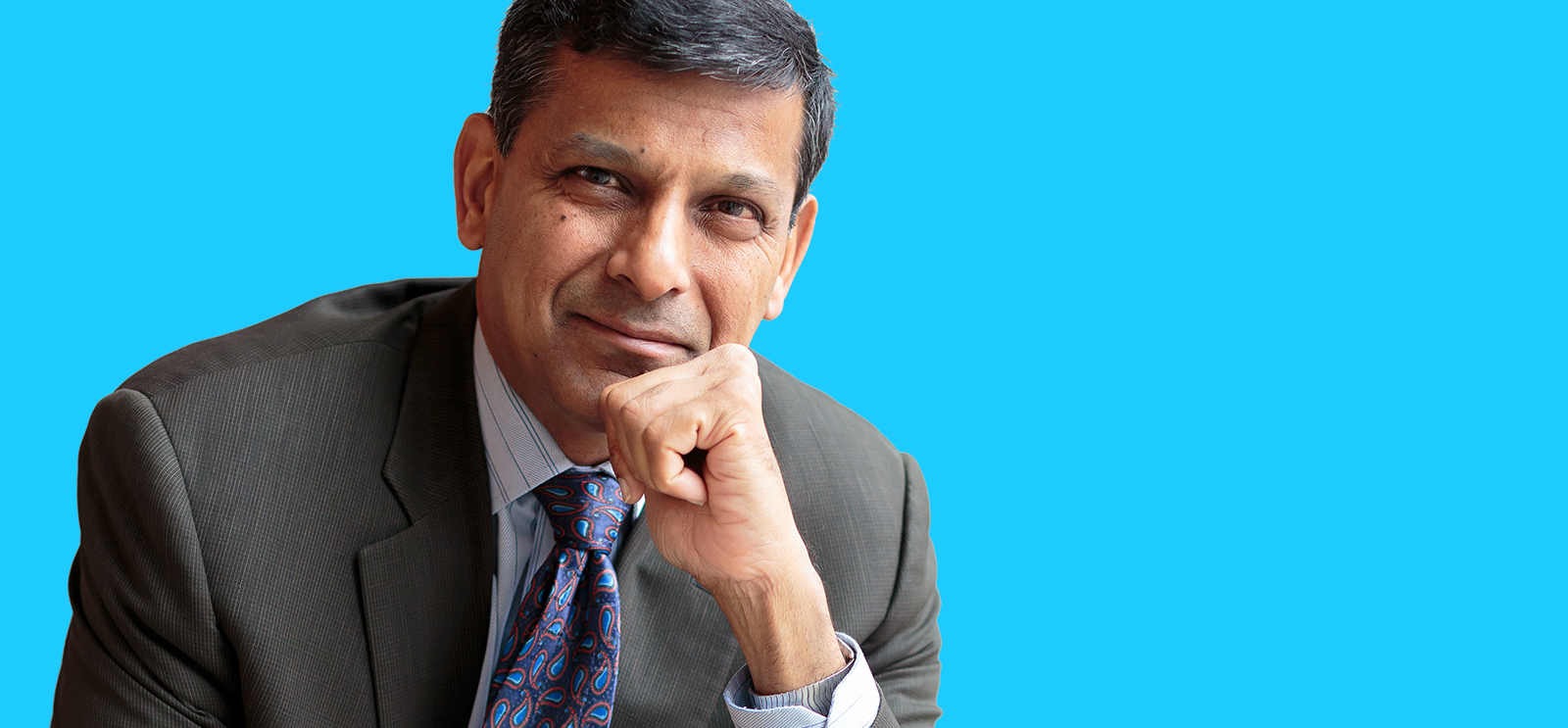
Raghuram Rajan. (Chicago Booth)
Raghuram Rajan reflects on his time at the Reserve Bank of India and coming back to academia.
After three years steering monetary policy in India as the country’s top central banker, Raghuram Rajan has returned home to the University of Chicago Booth School of Business, where he is the Katherine Dusak Miller Distinguished Service Professor of Finance. Rajan, who first joined Chicago Booth in 1991, was governor of the Reserve Bank of India from 2013 to 2016. He served as the chief economist and director of research at the International Monetary Fund from 2003 to 2006. Chicago Booth recently spoke to Rajan about settling back into academic life and his experience working as a policy maker.

What are you most looking forward to as you return to academic life?
One of the difficulties of a job in the “real world” is you don’t really get time to shut yourself off in a room and think. Now in academia, if you’re not too careful, you get really dragged into the real world and you don’t have that time. But if you are careful, you can spend four days in a room, sit looking at a piece of paper and struggling with a thought that refuses to come out. At the end of those four days, sometimes you say, “Oh my God, how did I miss this?”—and it dawns on you. And that’s as close to bliss as you can get.
How did the three years in India influence your research interests?
I’m interested in a number of issues that I was interested in before I left, but of course you are influenced by the real world. And what we see out there is a strengthening of populist movements around the world. You see some concerns about the market. Is the free market really what we want to have as a society?
In an era of widespread democracy you cannot have a system that works only for some, and not for others. The markets need political support. We need to further that debate. And UChicago has always played an important role in that debate. We need a better solution, and that is part of what I hope to think about.
Are there particular topics that you want to dig into?
The global financial crisis essentially gave us research topics for the next 30 years. If you look at what happened, there are about 15 to 20 different stories now emerging. I would argue that one of the biggest factors was a large amount of liquidity in financial markets, which tends to breed complacency. Actually [Chicago Booth professor] Doug Diamond and I have a paper on that now [National Bureau of Economic Research working paper, “Pledgeability, Industry Liquidity, and Financing Cycles,” January 2017].
More liquidity means more leverage. More leverage means more financial fragility. That complacency comes back to hit us in down times, and then the down times take a long time to get out of, because we’re still rebuilding the mechanisms that we shouldn’t have let go of in the good times. This is a fertile area for research—the increasing inequality, as well as the sort of leverage we built up in an attempt to deal with problems like inequality.
What’s the difference between being a scholar and being a policy maker?
As a policy maker, you’re desperate for more data to guide your policy making. You would love to have a ton of research telling you, “this works, that doesn’t, thus and such is how you should go.” But, in practice, you don’t have it. So you’re going 60 miles per hour with the rain pattering on your windshield, and the windshield is fogging up. And you’re on a highway, so you can’t stop, because you could cause a pileup, but you have no idea what’s in front of you. That’s sort of policy making.
And so you always go back. I found that if I went back to first principles, and thought through the problems, and said OK, if this is what is going on, here are the things that will affect the economy. Here’s what I don’t know, but here’s what I broadly know. But you don’t get time to really reflect.
How did you first become interested in economics and finance?
I was reasonably interested in math, and a friend told me about econometrics. I had read Isaac Asimov’s Foundation series and you’re trying to predict how people behave, and I thought well, that’s a nice thing. At that time I also started reading about John Maynard Keynes and the work he had done, and I found it extraordinary. The quick take on Keynes was he took the world out of depression. Now that’s not quite correct, but certainly his ideas were very influential in postwar economics— both in creating the Bretton Woods system [of monetary management], but also in the Keynesian approach to dealing with business cycles. It seemed to me that here was a person who through the strength of his ideas is changing the way we think. That’s extraordinary, and I wanted to be like him.
